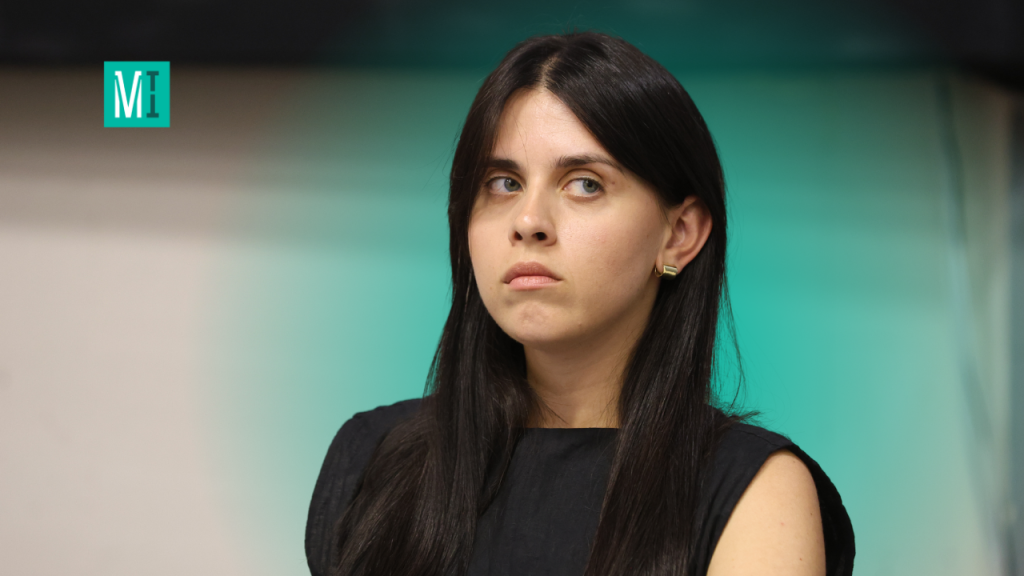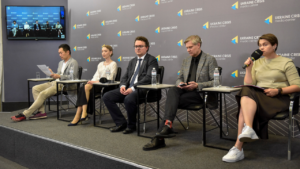“The international community should stop dreaming about the democratic Russia of the future,” Lyubov Smachylo at FORUM 2000

The FORUM 2000 Foundation’s annual democracy conference is taking place in Prague. This time, it is devoted to the challenges posed to democracy by developing technology, deepening global divisions, and internal splits in democratic systems.
Lyubov Smachylo, Media Initiative for Human Rights analyst, together with Oksana Pokalchuk, co-executive director of Truth Hounds, and Oleksandra Romantsova, executive director of the Center for Civil Liberties, took part in the panel discussion “Russian persecution and detention of civilians in the occupied territories of Ukraine.” The event was moderated by Stephanie Babst, independent strategic advisor and former Deputy Assistant Secretary General of NATO.
The human rights activists spoke about the general atmosphere of fear in the Russian-occupied territories of Ukraine, which arises from the illegal detention and torture of civilians. Total intimidation of residents severely limits the ability to document war crimes in these territories.
You can fall into the hands of the occupiers for any reason, for example, because of keeping Ukrainian books at home, subscribing to the Ukrainian public on social media, or living near strategic facilities. After detention, civilians are held in detention centers during the occupation and then transferred to Russia, where fabricated criminal cases are brought against them. Such an algorithm of Russian actions can be traced in all the occupied territories of Ukraine, which indicates a deliberate policy of the Russian Federation to persecute the civilian population systematically.

Participant and moderator of the panel discussion “Russian persecution and detention of civilians in the occupied territories of Ukraine” at FORUM 2000
The human rights activists emphasized that the international community should think about two global issues in this context: how to release Ukrainians from Russian captivity or at least gain access to their places of detention and how to bring those responsible for crimes against civilians to justice.
— “It is important to build a case with enough evidence to show that these persecutions are a crime against humanity. For this purpose, it is necessary to use all possible mechanisms of recording facts, such as reports of international organizations and independent experts,” emphasizes Smachylo.
When asked what democratic countries should do to rescue civilians illegally detained by Russia, human rights activists said that the world should keep this problem in mind and consistently promote the idea of releasing these people at all levels.
— “The international community should also focus not on the dream of a democratic Russia of the future, but return to the present and build a strategy for a safe life next to authoritarian Russia,” added Lyubov Smachylo.






